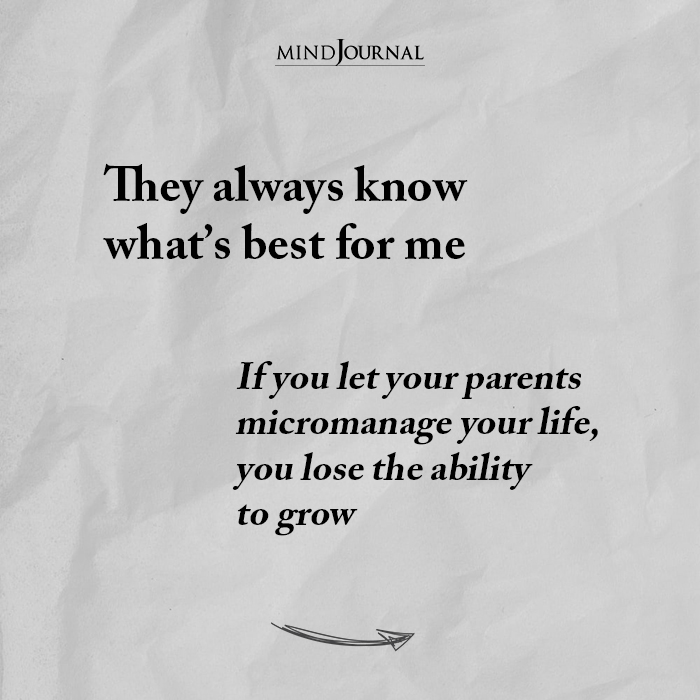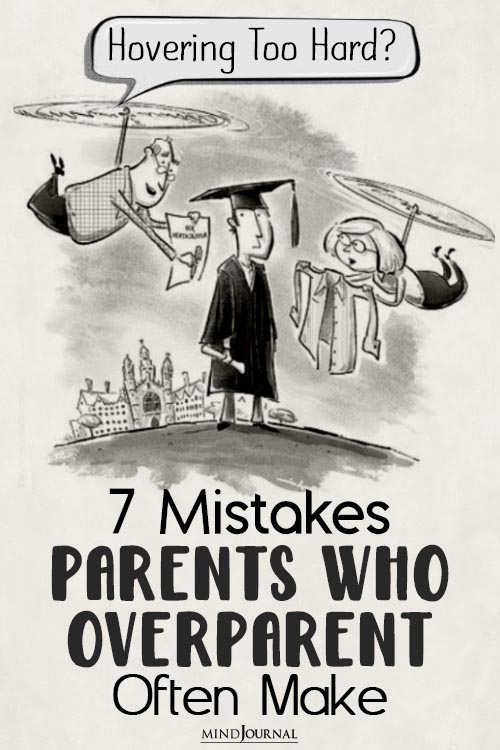It’s easy for parents who overparent to fall into the trap of doing too much in the name of love and care. But sometimes, all that hovering and controlling can backfire in surprising ways. Let’s break down the seven common mistakes and how to avoid them!
KEY POINTS
- Overprotective parenting can have a negative impact on children’s mental health and relationships.
- If you recognize any of these signs in yourself, it’s important to take steps to change your behavior.
- Encourage your child to try new things, let them make mistakes, take risks, and solve problems on their own.
As a parent, it’s natural to want to protect your child from harm. However, when this desire becomes excessive, it can lead to overprotective parenting.
Overprotective parenting can have a negative impact on children’s mental health and relationships. Here are seven signs that you may be an overprotective parent.
Related: 5 Signs Of Overprotective and Unaffectionate Parents
7 Mistakes Parents Who Overparent Make
1. You Don’t Let Your Child Try New Things Alone
Overprotective parents often don’t let their children try new things alone. They may think their child is too young and doesn’t know the “proper” way to play or do anything.
To make sure things do not go astray, they stay by their child all the time. This can prevent children from developing independence and self-confidence.
For example, leave some random non-toy objects out for your child and encourage creativity by asking them to reinvent the object as something else. Don’t take over the game. Let them design and enforce the rules.
2. You Constantly Worry About Your Child’s Safety
Overprotective parents often worry excessively about their child’s safety. They may be afraid of their child getting hurt or kidnapped, so they don’t let them play outside or go to the park alone.
While it’s important to keep children safe, overprotective parenting can lead to anxiety and fear in children.
At a restaurant, you might be reluctant to let your kiddo go to the bathroom alone even though they do it at home and school all the time. Parents can ease into this transition by getting a table where they can see the bathroom.
You don’t have to walk them to the bathroom, but you will minimize your anxiety if you can see them enter and leave the bathroom. Meanwhile, the child will gain a sense of autonomy.
3. You Don’t Let Your Child Make Mistakes
Overprotective parents often don’t let their children make mistakes. They may think that making mistakes will harm their child’s self-esteem or future prospects. However, making mistakes is a natural part of learning and growing up.
Children who are not allowed to make mistakes may become overly dependent on their parents and lack confidence in their own abilities.
In Japan, it is not uncommon for children learning math to stand in front of the class and take half an hour trying different approaches to solving problems, all while the rest of the class looks on.
Making mistakes is not seen as shameful or a sign that you are a slow learner, but as a necessary part of the process.
4. You Don’t Let Your Child Take Risks
Overprotective parents often don’t let their children take risks. They may think that taking risks is dangerous and could lead to harm. However, taking risks is an important part of learning and growing up.
Children who are not allowed to take risks may become overly cautious and lack confidence in their own abilities. For example, if your kid really wants to climb a tree or ride a bike, let them.
Related: 6 Signs You Are Raising An Overprotected Child
5. You Don’t Let Your Child Solve Their Own Problems
Overprotective parents often don’t let their children solve their own problems. They may think that solving problems is too difficult for their child or that they need to protect them from failure.
However, problem-solving is an important life skill that children need to learn. Children who are not allowed to solve their own problems may become overly dependent on their parents and lack confidence in their own abilities.
Since its first use as a description of overprotective parenting back in 1969, the term “helicopter parent” has given way to more modern phrases.
By the early 2000s, as the oldest millennials were entering college, parents and educators popularized the term helicopter parent and added snowplow parent and bulldozer parent to the lexicon.
6. You Don’t Let Your Child Interact With Other Children Freely
Overprotective parents often don’t let their children interact with other children freely. They may be afraid of bullying or other negative social interactions that could harm their child’s self-esteem or mental health.
However, social interaction is an important part of learning and growing up. Children who are not allowed to interact with other children freely may become socially isolated and lack confidence in their social skills.
For most of human history, play dates were not really a thing. Gen Xers often wax nostalgic about roaming the neighborhood unsupervised and staying out until they heard mom yelling from the front porch to come home for dinner.
Since the 1990s, play dates have become a safe way to organize social time. Play dates can help children make new friends, exercise, build social skills, and explore other cultures. All good things. However, it’s important to try to give kids—whenever possible—plenty of free play with peers.

7. You Don’t Let Your Child Experience Failure
Overprotective parents often don’t let their children experience failure. They may think that failure will harm their child’s self-esteem or future prospects. However, experiencing failure is a natural part of learning and growing up.
Children who are not allowed to experience failure may become overly dependent on their parents and lack confidence in their own abilities.
In conclusion, overprotective parenting can have a negative impact on children’s mental health and relationships. If you recognize any of these signs in yourself, it’s important to take steps to change your behavior.
Encourage your child to try new things alone, let them make mistakes, take risks, solve problems on their own, interact with other children freely, and experience failure as a natural part of learning.
For more, check out Dr. Bennett’s TikTok @KevinBennettPhD and his podcast on danger, deception, and desire kevinbennettissnarling.buzzsprout.com
Copyright © Kevin Bennett, Ph.D.
Written By Kevin Bennett Ph.D.
Originally Appeared On Psychology Today










Leave a Reply